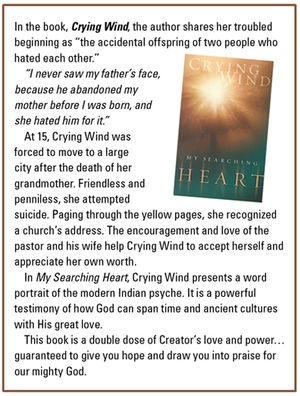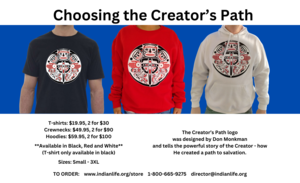Listen, watch, learn...then talk (maybe)
Last updated 9/28/2013 at 12:32pm
Summer time is a time for adventure. Vacations, trips, visiting family, and reading. Some of our best times of reading are when we are on holidays.
I discovered this to be true when my family and I spent a few days in the Cypress Hills of southwestern Saskatchewan in August. The Cypress Hills are sacred to North America’s Indigenous Peoples. Sacred because it was on this ground that innocent blood was shed in what has become known as the “Cypress Hills Massacre.”
So what better way to spend several hours than to read some Native literature. I brought along a copy of a great book entitled Neither Wolf Nor Dog by Kent Nerburn (New World Library). The first of a trilogy (Wolf at Twilight and the soon-to-be released The Girl Who Sang to the Buffalo).
Neither Wolf Nor Dog is a most unusual book stretching readers across the gamut of emotions—from tears to laughter, anger to sheer joy. A word of caution: It’s not for everyone (and I imagine the same for the other two titles). Some will find things they can’t agree with. That’s OK. But if that keeps you from reading this, I’m very sorry because this book opened up the Native American world like no other I have ever read.
Kent Nerburn has written extensively about Native Americans and he has traveled thousands of miles, interviewing countless individuals, in search of what makes Native Americans who they are. This book is based on Nerburn’s encounters with a Native elder who is called Dan in the book. The author spent weeks with Dan helping him write his story. This book reports on those encounters.
To give you just a taste of what I mean, here’s a sample:
One day Dan startled me with a full sentence. “You’re getting better with silence,” he said.
“I am?”
“I watch you.”
“I know.”
“You’re learning. I can tell because of your silence.”
I sensed that he had something to say. Dan did not make small talk when he was on his hill.
“We Indians know about silence,” he said. “We aren’t afraid of it. In fact, to us it is more powerful than words.”
I nodded in agreement.
“Our elders were schooled in the ways of silence, and they passed that along to us. Watch, listen and then act, they told us. This is the way to live.
“Watch the animals to see how they care for their young. Watch the elders to see how they behave. Watch the whiteman to see what he wants. Always watch first, with a still heart and mind, then you will learn. When you have watched enough, then you can act.”
There was a silence.
Nerburn goes on to relate that a major difference between Native peoples and white people is that white people learn by talking while Native peoples use silence to their advantage. Dan tells Nerburn, “You learn by talking...In your work you are always having meetings where everyone interrupts everyone else and everyone talks five, ten, or a hundred times. You say it is working out a problem. To us it just sounds like a bunch of people saying anything that comes into their heads and then trying to make what they say come around to something that makes sense.”
Then Dan explains why Indians find silence so effective. “So you talk right away, before you even know what you are going to say.
“Our elders told us this was the best way to deal with white people. Be silent until they get nervous, then they will start talking. They will keep talking and if you stay silent, they will say too much. Then you will be able to see into their hearts and know what they really mean. Then you will know what to do.”
Wow, that hurts!
One fact I’ve come to realize after reading this book is that the more I learn about our First Nations peoples, the more I feel I need to learn. After 23 years of serving as editor of Indian Life, I now realize how little I know.
Ever wonder why there is still such a gap between the dominant society and our Indigenous peoples?Why there are still the stereotypes on both sides and why we still tend to put people groups into boxes?Maybe it’s because we haven’t taken enough time to sit, listen, and watch.
As nations and in our churches, we’ve come a long way in our relationships but there is one thing certain. We’ve got to keep listening, watching and learning from one another.








